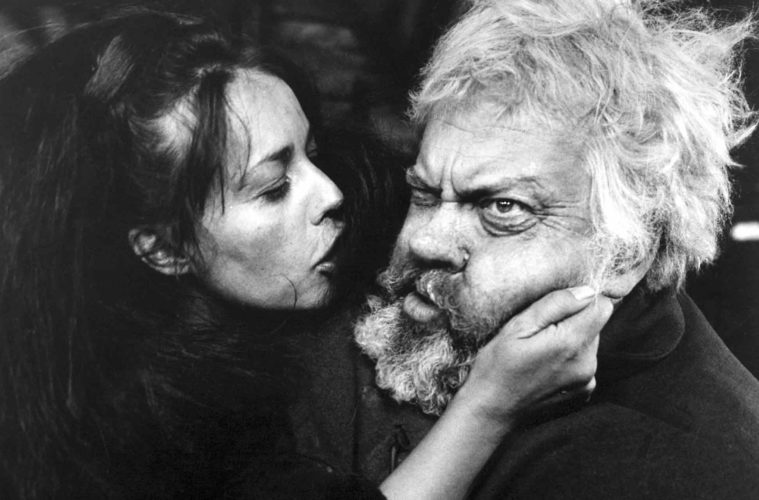When the year-end catch-ups are done and the paint’s still wet on your 2016 viewing log, is there any better way to begin twelve months of movies than Orson Welles‘s Chimes at Midnight? Ahead of a home-video release, this long-rare masterpiece — Welles’s favorite of his work — has been given a restoration that Criterion and Janus Films have “sourced from Filmoteca Española’s scan of the original 35mm negative.” And you’ll get to experience this soon: it’s premiering at New York’s Film Forum and Los Angeles’ Cinefamily on January 1, and afterward expanding to cities throughout the country.
Ahead of this fine occasion, we’ve been graciously offered an opportunity to present the official poster. The work of Sterling Hundley evokes this picture’s dirtiness, starkness, overpowering middle-age aesthetics, and, of course, Falstaff, Shakespeare’s comic figure who, in this new iteration, makes for one of Welles’ greatest creations as a writer and performer. Even a brief trailer will make clear that Chimes is not to be missed, especially if the theatrical experience comes your way.
Below, one can see it for themselves, along with a new trailer:

The crowning achievement of Orson Welles’s later film career, Chimes at Midnight returns to the screen after being unavailable for decades. This brilliantly crafted Shakespeare adaptation was the culmination of Welles’s lifelong obsession with the Bard’s ultimate rapscallion, Sir John Falstaff, the loyal, often soused childhood friend to King Henry IV’s wayward son Prince Hal. Appearing in several plays as a comic supporting figure, Falstaff is here the main event: a robustly funny and ultimately tragic screen antihero played by Welles with towering, lumbering grace. Integrating elements from both Henry IV plays as well as Richard II, Henry V, and The Merry Wives of Windsor, Welles created an unorthodox Shakespeare film that is also a gritty period piece, which he called “a lament . . . for the death of Merrie England.” Poetic, philosophical, and visceral—with a kinetic centerpiece battle sequence as impressive as anything Welles ever directed—Chimes at Midnight is as monumental as the figure at its center.


